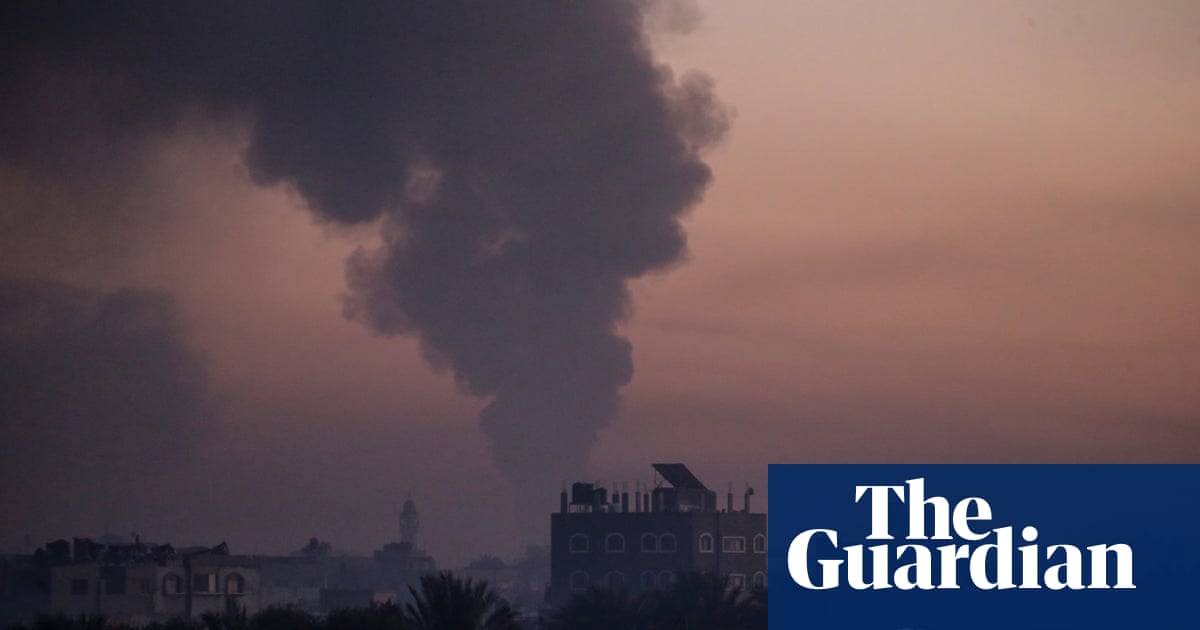
What is Labour’s new position on a Gaza ceasefire – and how big a change is it?
For the first time since the 7 October attacks, Labour is now calling for an immediate ceasefire in Gaza, though it is qualifying that by saying the ceasefire should be “humanitarian”. The difference is important.
Labour says the ceasefire should only happen if both sides agree, and that Israel cannot be expected to stop fighting if Hamas is still threatening further attacks. Otherwise, the party wants a pause in fighting to allow aid to get through to Gaza. It is also calling for Israel not to invade Rafah, where 1.5 million people are taking shelter.
The difference between the current position and the one the party took last year is the use of the word “ceasefire”. In November, the party called for an “enduring cessation of fighting” instead, telling its MPs to abstain on the Scottish National party motion calling explicitly for a ceasefire.
Since that vote, many Labour MPs have been bombarded with messages from angry constituents asking why they voted against a ceasefire, and have struggled to explain the nuance of November’s vote.
Why has this decision been made now?
Starmer has been gradually shifting his position on Gaza over the past few months. Having first ruled out a ceasefire, he then began talking about a cessation of fighting, before saying he wanted to work towards an enduring ceasefire.
However, three things have prompted a noticeable shift in position over the last week.
The first was a joint statement by Canada, Australia and New Zealand last week calling for “an immediate humanitarian ceasefire” and for Israel not to attack Rafah. This gave Starmer cover to adopt similar language.
The second was the Scottish Labour conference this weekend, at which members voted in favour of an immediate ceasefire. Starmer managed to avoid any impression of a split with Scottish Labour – and its leader, Anas Sarwar – by giving a speech in which he said: “The fighting must stop now.”
Opposition whips have now published an amendment to the SNP motion setting out the party’s stance on the crisis, which they hope Labour MPs will back instead of a separate amendment from the SNP calling more bluntly for an immediate ceasefire.
Labour’s amendment, which will be put to the vote on Wednesday, has really focused minds. Labour has known for weeks the SNP was likely to call a vote almost identical to that in November, which did such damage on the Labour benches. Last week at the Munich security conference, Starmer, his shadow foreign secretary, David Lammy, and the shadow defence secretary, John Healey, thrashed out an amendment to the SNP motion which they hope will finally unite their party.
Will Starmer’s tactics work?
Several Labour MPs who rebelled last time say they support the party’s new amendment and are willing to vote for it and abstain on the SNP amendment, as whips are likely to demand. Some will rebel, but Starmer’s team is hopeful it will be fewer than last time and will not involve any more frontbenchers resigning.
The big risk, however, is that the Speaker of the House of Commons picks the government amendment and not the Labour one. Given the government amendment talks about working towards a permanent ceasefire but does not call for an immediate one, some Labour MPs may feel they cannot then abstain on the broader SNP motion.
Whether Starmer faces an even bigger rebellion than he did in November may now rest in the Speaker’s hands.












